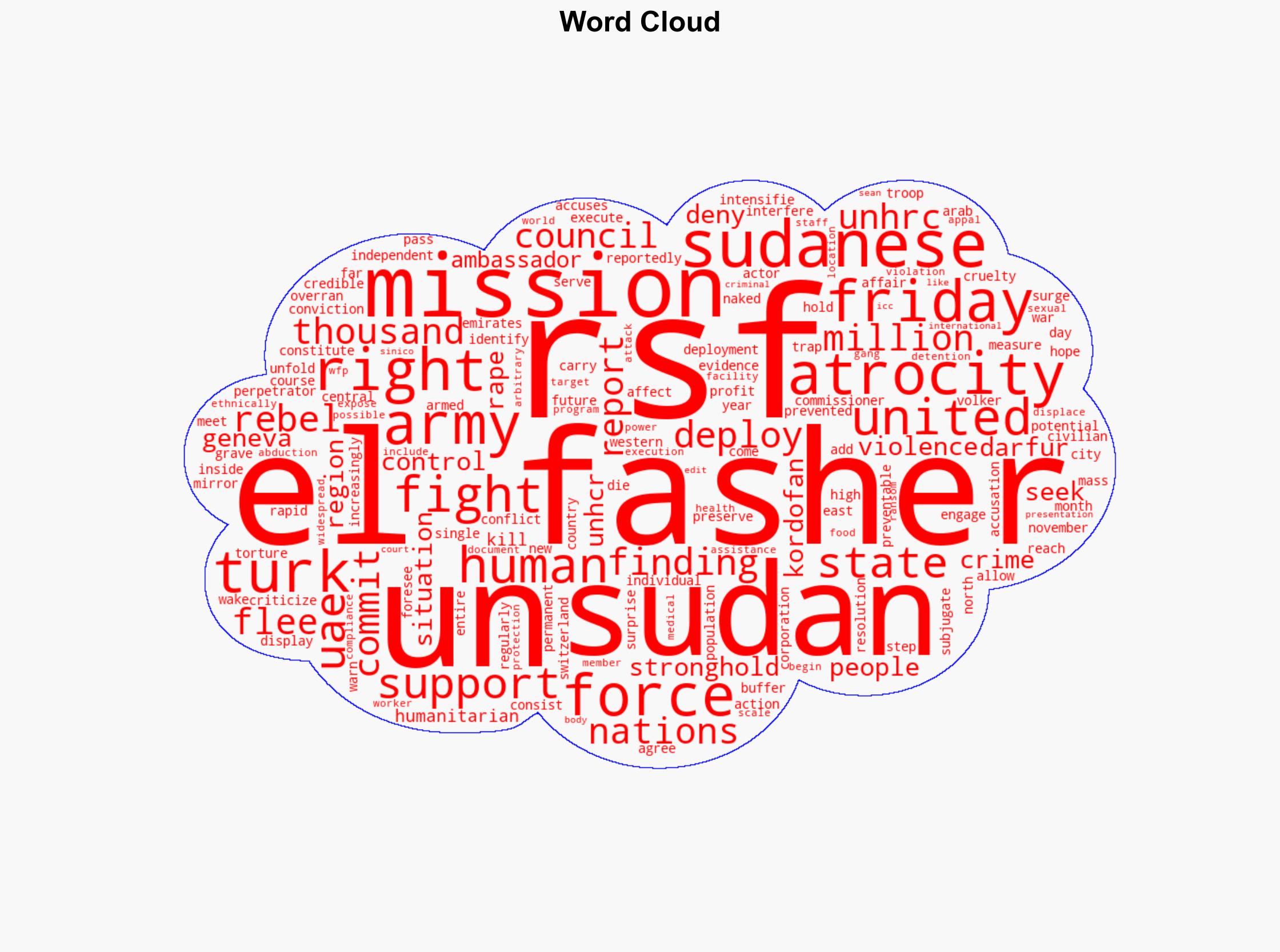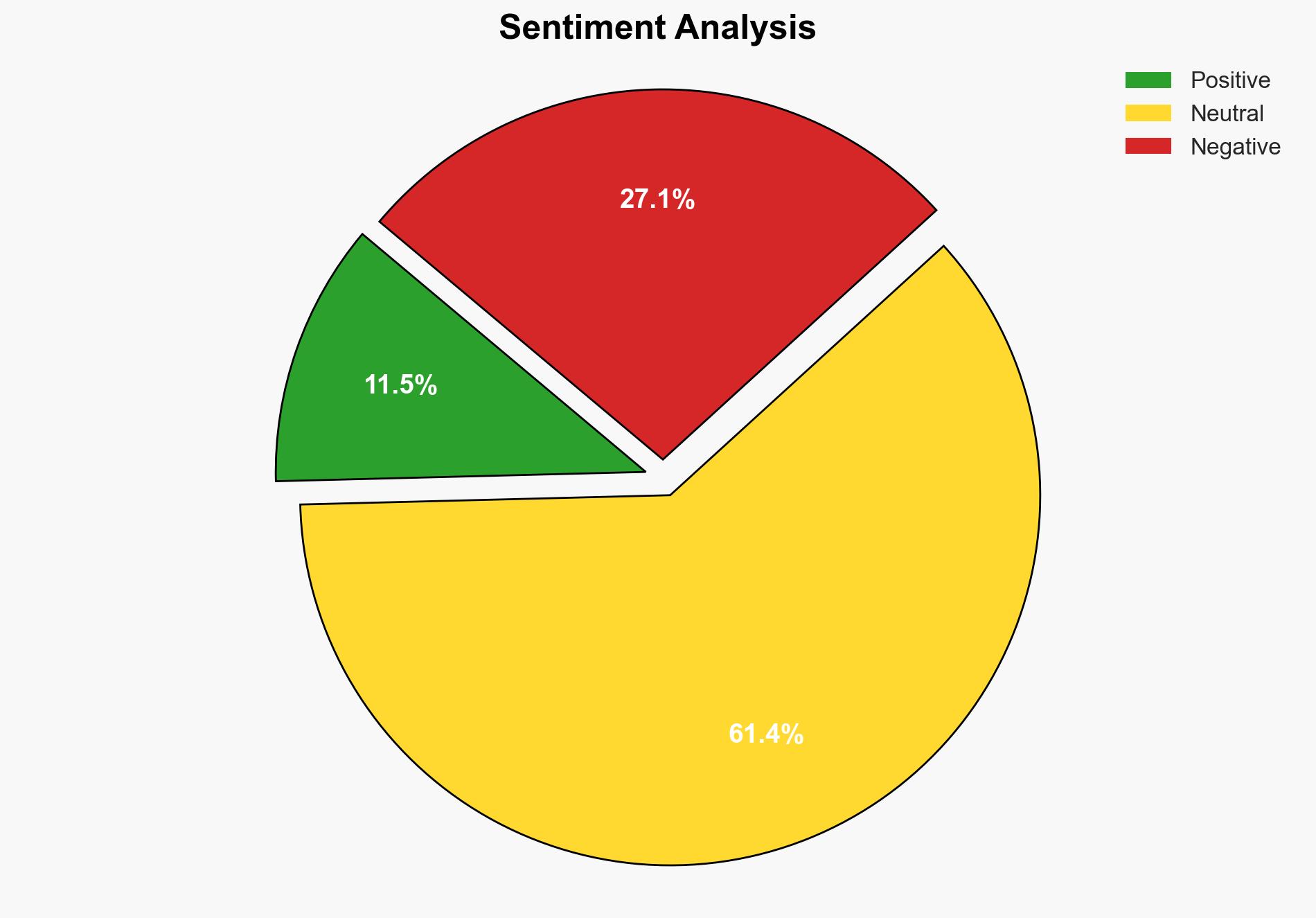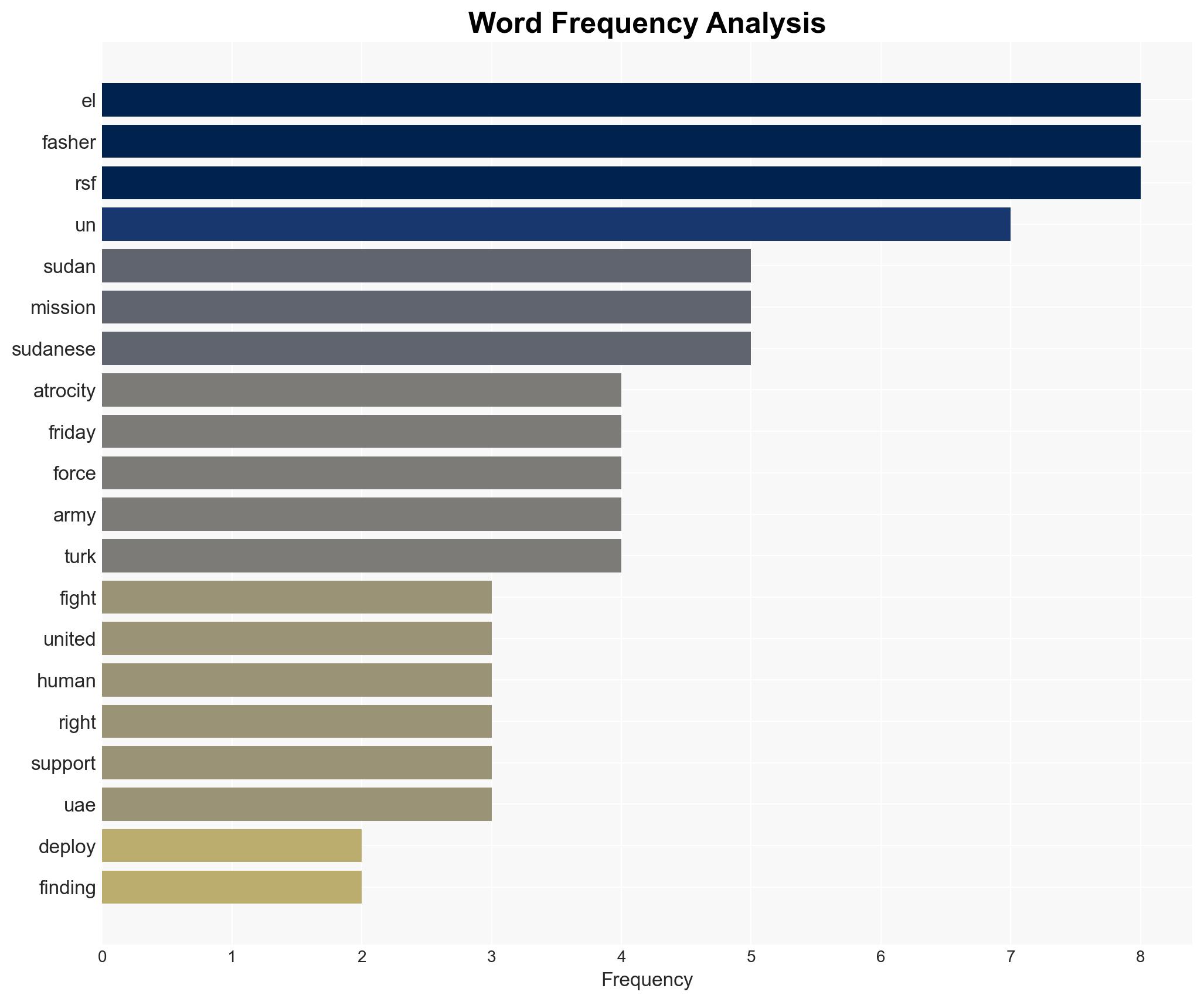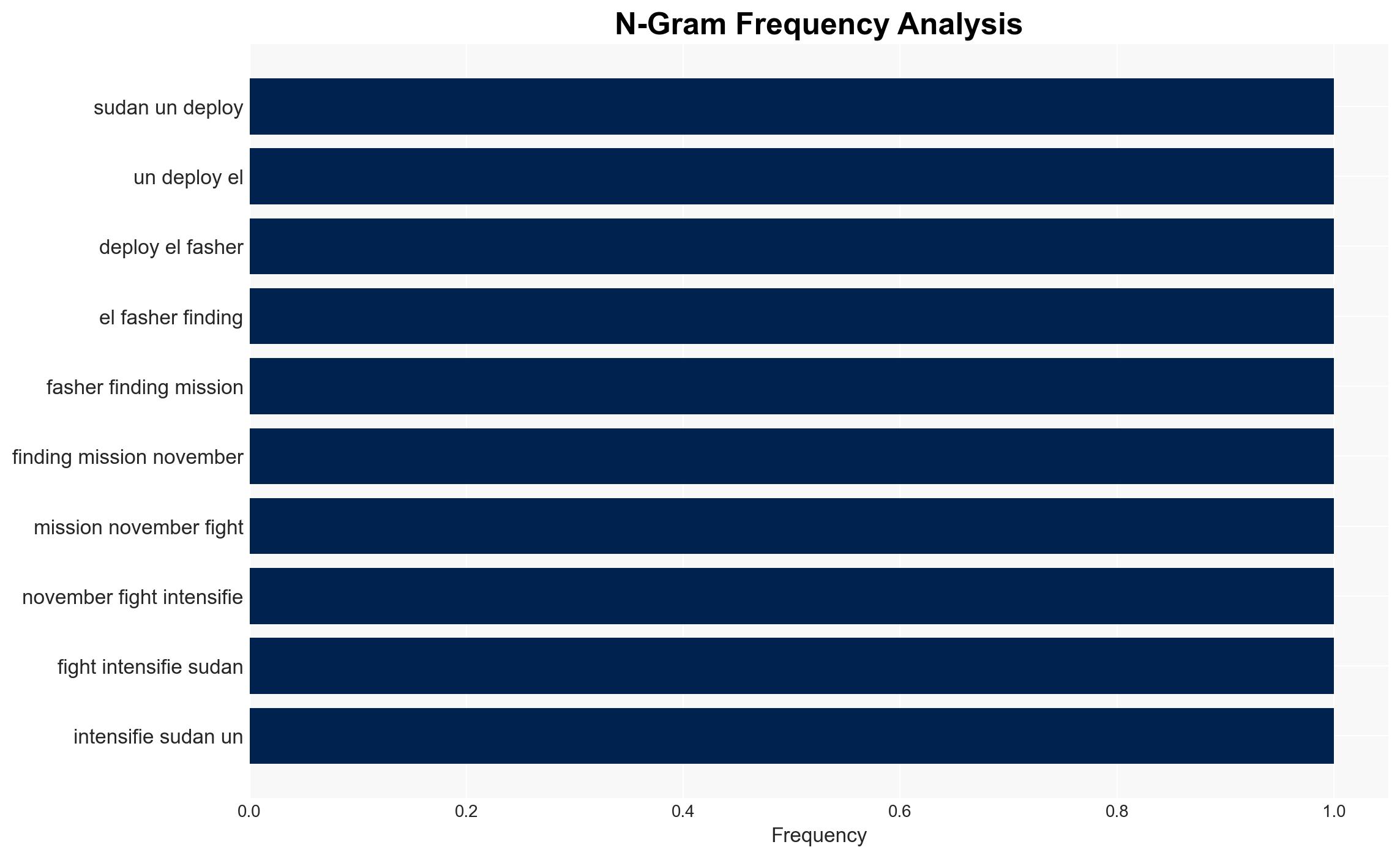Sudan UN to deploy el-Fasher fact-finding mission – DW (English)
Published on: 2025-11-14
AI-powered OSINT brief from verified open sources. Automated NLP signal extraction with human verification. See our Methodology and Why WorldWideWatchers.
Intelligence Report: Sudan UN to deploy el-Fasher fact-finding mission – DW (English)
1. BLUF (Bottom Line Up Front)
The deployment of a UN fact-finding mission to El Fasher is a critical step in addressing alleged atrocities committed by the Rapid Support Forces (RSF) and the Sudanese army. The most supported hypothesis is that the RSF is primarily responsible for the reported human rights violations, given their control over El Fasher and historical patterns of behavior. Confidence level: Moderate, due to potential bias and limited access to independent verification. Recommended action: Strengthen international diplomatic pressure on both parties to ensure access for humanitarian aid and support the mission’s objectives.
2. Competing Hypotheses
Hypothesis 1: The RSF is primarily responsible for the atrocities in El Fasher, leveraging control to commit systematic human rights violations.
Hypothesis 2: Both the RSF and the Sudanese army are engaged in atrocities, with the conflict dynamics obscuring clear attribution of responsibility.
Hypothesis 1 is more likely due to the RSF’s established presence in El Fasher and historical precedent of similar actions. However, the complexity of the conflict and potential misinformation necessitate caution.
3. Key Assumptions and Red Flags
Assumptions include the reliability of UNHRC reports and the RSF’s operational control in El Fasher. Red flags involve potential bias in reports, the possibility of misinformation by involved parties, and geopolitical influences, such as alleged UAE support for the RSF, which could skew perceptions and actions.
4. Implications and Strategic Risks
The situation in El Fasher could exacerbate regional instability, potentially leading to increased refugee flows and humanitarian crises. There is a risk of escalation into broader regional conflict, particularly if external actors are involved. The situation could also impact international relations, especially if evidence of external support for the RSF is substantiated.
5. Recommendations and Outlook
- Enhance diplomatic efforts to ensure the safety and access of the fact-finding mission.
- Encourage transparency and accountability from both the RSF and the Sudanese army.
- Prepare for humanitarian assistance escalation to address potential refugee crises.
- Best-case scenario: Successful fact-finding mission leading to accountability and de-escalation.
- Worst-case scenario: Escalation of conflict with increased atrocities and regional destabilization.
- Most-likely scenario: Continued tension with intermittent violence and limited progress in accountability.
6. Key Individuals and Entities
Volker Turk (UN High Commissioner for Human Rights), RSF leadership, Sudanese army leadership, UAE government (alleged supporter of RSF).
7. Thematic Tags
Regional Focus, Regional Focus: Sudan, Darfur, Human Rights, Conflict Resolution, International Diplomacy
Structured Analytic Techniques Applied
- Causal Layered Analysis (CLA): Analyze events across surface happenings, systems, worldviews, and myths.
- Cross-Impact Simulation: Model ripple effects across neighboring states, conflicts, or economic dependencies.
- Scenario Generation: Explore divergent futures under varying assumptions to identify plausible paths.
Explore more:
Regional Focus Briefs ·
Daily Summary ·
Support us
·





